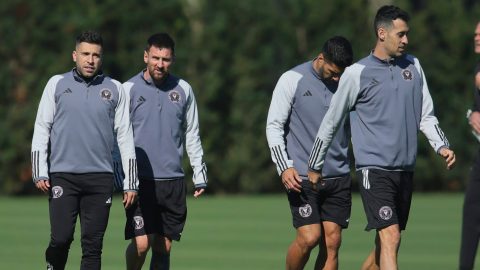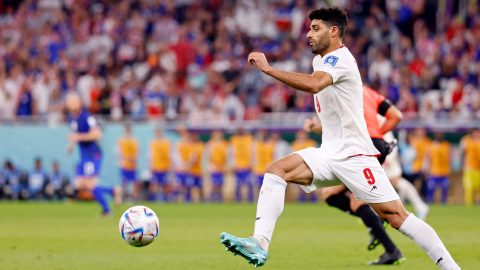 DUBROVNIK, Croatia — UEFA’s 54 member countries support switching the 2022 World Cup in Qatar to winter, even though the rest of European football is not ready to agree on anything before consultation with FIFA.
DUBROVNIK, Croatia — UEFA’s 54 member countries support switching the 2022 World Cup in Qatar to winter, even though the rest of European football is not ready to agree on anything before consultation with FIFA.
Clubs, leagues and players’ unions, which join national federations in the Professional Football Strategy Council, declined Thursday to give UEFA President Michel Platini approval for the change, which Sepp Blatter says the FIFA board should decide on next month.
On Wednesday, UEFA members told Platini they would support the winter switch, and prefer to play in January in Qatar.
“It’s not an agreement,” Theo van Seggelen, secretary general of the FIFPro group of unions, told The Associated Press after the strategy panel discussion. “That has to be agreed by FIFA and we want to be involved in the discussion.”
Platini must weigh how to represent accurately the views of European football when he leads an eight-strong UEFA delegation at the 27-member FIFA executive committee session in Zurich on Oct. 3-4.
Van Seggelen said the summer heat in Qatar was the most important of several questions for FIFPro.
“We will not play in Qatar but also not play in other [hot] places, so for us it’s simple,” he said. “We don’t play in the heat because it’s not in compliance with our policy.”
Dutch league official Frank Rutten, one of four European Professional Football Leagues delegates on the UEFA panel, said he was “satisfied with the outcome” of the two-hour session.
“We only say that the decision should be made only after proper consultation,” Rutten said.
Wealthy European leagues and the Champions League tournament would face most disruption in their traditional August-to-May season from Blatter’s suggested plan to kick off in November 2022, avoiding a clash with the Winter Olympics in February.
The clubs, league and unions have raised concerns about knock-on effects, including coordinating promotion and relegation places with lower divisions, depriving clubs of income during a general shutdown for the World Cup period and the health issues of forcing hundreds of teams to play through the hot southern European summer.
“We have also responsibility for our other players because national team players are only 2 percent of our members,” Van Seggelen said. “Whatever happens, [it should be] done in a way that also the other players are protected financially.”
Amid an intensifying debate since the December 2010 hosting vote, Qatari World Cup organizers have never requested a change and insist they can stage a June-July tournament in cooled stadiums.
FIFPro delegate Bobby Barnes said there was a “strong movement” toward wanting Qatar to host the World Cup, but a winter tournament was not yet inevitable.
“People are unified that a summer World Cup is increasingly unlikely — whether that means a change in venue or a change in scheduling is still to be discussed,” he told the AP.
Van Seggelen and Barnes are scheduled to meet Blatter in Zurich on Monday where they plan to also raise concerns about hot temperatures at some 2014 World Cup matches in Brazil.
“I don’t understand, personally, that we have nine years,” Van Seggelen said about the rush to alter preparations for the 2022 World Cup. “Let’s first see what happens in Brazil.”



